Access and participation
OfS have launched a consultation: A new approach to regulating access and participation in higher education which closes on 12th October.
The main proposed changes are:
- Five year plans (where appropriate): The OfS will place the approval of access and participation plans on a more strategic timescale.
- Providers will be required to publish and submit an impact report to the OfS each year.
- Access and participation plans must include a set of strategic, outcomes focused targets.
- The OfS will collect predicted access spend disaggregated by pre-16 activity, post16 activity and work with adults and communities in access and participation plans.
- Providers will need to complete a self-assessment of their evaluation activities.
- OfS will undertake further work to explore whether providers should publish transparency data by age and disability
- OfS will create, publish and maintain an access to participation dataset providing an accurate picture across the sector and at individual providers.
The story is covered in Research Professional:
- Progress on five-year targets will be submitted by universities each year and scrutinised by the OfS. Universities which are deemed to be at risk of falling short will have to submit plans every three years.
- Other proposals include dropping requirements for universities to report on student success and progression spend, and plans to publish a dataset showing success rates for individual institutions on access and participation.
On Wonkhe: Chris Millward, director for fair access and participation, outlines what OfS has published as part of its consultation on access and participation today, and the rationale behind it.
- I am just finishing assessing the first round of access and participation plans. They show significant investment and increasingly well thought-out activity. However, the ambition I hear in meetings often isn’t matched in these plans, either by aspirational targets or progress on the ground.
- There are still significant challenges that need to be acknowledged in plans, for example, poorer outcomes that go hand in hand with particular groups of students. We need universities and colleges to be rigorous in their self-reflection and use of evaluation and evidence. Many of the first drafts of plans we read were weak in these areas. Some self-assessments gloss over the problems, sometimes seeking to assign blame to others, or hide behind sector-wide patterns. It is, frankly, not the sort of practice that should pass muster in knowledge-based organisations.
- As we signalled in the regulatory framework, institutions will need to publish data on applications, offers, admissions, and outcomes split by gender, ethnicity, and socio-economic background. The consultation suggests we go further, including data by age and disability status. The OfS will also launch an access and participation data set. This will show the extent to which progress is being made across the sector and at individual providers. These measures will cast a brighter spotlight than ever before on institutional performance. It will be evident which institutions are helping to close stubborn gaps in participation and outcomes, and which aren’t.
David Kernohan analyses OfS’s consultation documents on its approach to regulating access and participation, and explains why it is the biggest change in the realm of widening access since the 2004 genesis of the Office for Fair Access (OFFA).
Equality and Diversity – metrics
Advance He have issued their annual report giving data on age, disability, ethnicity and gender of staff and students for 2016/17.
- The degree attainment gap between BME undergraduate qualifiers and white undergraduate qualifiers decreased from 15.0 percentage points in 2015/16 to 13.6 percentage points in 2016/17.
- Overall, 12.0% of UK students disclosed as disabled in 2016/17, with one in five of disabled students reporting a mental health condition.
- Since 2003/04, the proportion of HE staff disclosing as disabled has more than doubled from 2.2% in 2003/04 to 4.9% in 2016/17.
- Only one in four professors were women; of these female professors, 91.6% were white, with only 8.4% identifying as BME.
- More than 1 in 10 students disclosed as disabled in 2016/17 (12.0%)
- The attainment gap between white and black students qualifying with a First/2:1 degree was 24.0%
- The majority of academics on fixed-term contracts were aged 40 and under (64.6%)
- only 1 in 5 female academics earned over £50,000 (22.5% of female academics, compared to 35.6% of male academics)
Where next? UUK Annual Conference
The Ministerial speech to the annual UUK conference has been used to make major policy announcements in the past but not this year – more of a resetting of tone and relationship. It seems to have gone down well. Although when you read it he isn’t actually rowing back from much of the negative stuff he has said recently – just putting it in a more positive context. Fluff? Or a genuine change of approach? We’ll see.
Research Professional have published their usual brilliantly scathing annotated version of the speech.
Some quotes from the actual speech (and we have covered other bits below in the relevant sections).
- When I took office in January, I said that we were now in the Age of the Student. Since then I’ve made it a priority to visit campuses and listen to students. I’m going to keep on doing this.
- Let me start by setting out what I hope I have made obvious in the past 9 months: I love our universities.
- Going to university is worth it.
- A good degree [note the caveat] is worth the investment, both the investment that students make through fees, and the investment that the government makes through the T-grant and through the student loans system. Research still demonstrates that the graduate still earn a premium over their lifetime. What is more, university can be a ‘rite of passage’ – with an important opportunity to learn and grow as a person.
- …it is a good time to challenge other myths that surround our universities. Like the idea that universities provide only academic education, rather than a vocational one. One only needs to look at the list of courses at some at some of our oldest universities to realise the idea that degrees are academic, not vocational is mistaken. Let’s also challenge the false dichotomy between Higher Education and Further Education that dominates the public debate on post 18 education. In fact, we have further and technical education being taught in the Higher Education sector, and higher education qualifications being awarded in the Further Education sector. This is not a zero-sum game. If the UK is to thrive we need more technical skills and more general analytic and creative skills; more vocational education and more academic education; more Level 4 and 5 skills and more degrees, both undergraduate and graduate level.
- [here’s the caveat] This is not to say that every degree at every university is as good as it can be. I have spoken before about the importance of understanding which degrees do not offer value for money, and making sure students have the information to make the choices that are right for them. But it is right that we make a full-throated defence of the value of university education as a whole.
- That is not to say that the political debate that universities find themselves in can be ignored. If universities want to play an active role in the public realm, you and the Government collectively have a duty to earn and retain the public’s trust. There are two particular areas where we need to be vigilant. The first is value for money. I’ve spoken before about the need to ensure that students get a quality education in return for the investment they make. If the perception grows that universities are offering threadbare courses, or prioritising getting bums on seats [so he hasn’t dropped that rhetoric either] over quality, the credibility of the HE sector as a whole will suffer. Likewise if universities see applicants as commodities, and neglect the student experience or their mental health needs. Or if universities are seen as hotbeds of unjustified high salaries. This is why we have pushed ahead with the Teaching Excellence and Student Outcomes Framework and Longitudinal Educational Outcomes dataset. And it is why I have been vocal on issues like the growth of unconditional offers, mental health on campus and the rise of essay mills. The other big risk for universities is becoming disconnected from the wider world. If universities are seen as ideological echo chambers; if research is seen as disconnected from the wider world; if universities are seen as distant from their communities, again, their mission will be compromised and their credibility will suffer. I know that many of you work hard to prevent this kind of turning inwards. Our best universities are not ivory towers. Still less are they “left-wing madrassas”, as one controversialist chose to describe them. But ideological diversity, strong research cultures, engagement with the wider world, and fair access are ongoing battles – and the price of failure will be very high.
- It may not be fashionable to say it, but at times like this, we need experts more than ever. This is not the time for our universities to shrink back and sulk. We need our universities to engage and lead in these debates publicly, because you are the connective tissue to the next generation.
- We will need to make the most of universities’ direct contribution to the economy too.
- Our vision must be local as well as global. The great universities of the nineteenth and early twentieth century were founded with a clear civic vision. They promoted not just the republic of knowledge, but also their local town and community.
The President of UUK, Dame Janet Beer, also spoke.
Fees and funding
The Minister spoke at UUK this week (see above) and so did Philip Augar. No firm news on the Post-18 review but there were some hints. The Minister said:
- We should also be clear-eyed about the advantages of our Higher Education funding system. The English system of funding undergraduate study through fees and loans has allowed us to remove student number caps, made access fairer, and kept our universities adequately funded to pursue their mission…Our student finance system is not perfect. But it has some major advantages. And I can assure you, I am deeply aware of them.
Research Professional quote Philip Augar:
- “The taxpayer’s contribution to higher education is largely concealed from the public eye; it’s largely concealed by the current method of accounting for student loans,” Augar told the conference.
- “We don’t know what the ONS will say; we don’t even know exactly when they are going to say it. But the working assumption has to be that things will change, and presumably will change at the most extreme end in terms of bringing…more of the debt write-off onto the balance sheet, and presumably some change in the manner of accounting for interest received. This will lead, we think, to much more public scrutiny of the taxpayer subsidy for higher education, in particular to the cliff edge in debt that crystallises in the 2040s.”
- Commenting on the timetable for the review, set to be published in early 2019, Augar said that the ONS review made it more complex. He added that the interim report would be released “hopefully before the end of this year, it’s possible that could slip, it depends entirely on the timing of the ONS review and in fact it is a decision for government.”
The President of UUK, Dame Janet Beer, also spoke:
- As you heard last night from Lord Willetts, there is a sense of déjà vu when considering university funding policy. Once again, we have a major post-18 review of HE and FE funding in England – and we will hear more from its chair, Philip Augar, later today.
- While political pressures arguably triggered this review, the government should aspire to outcomes which are long-term and far-reaching, and avoid short-term fixes which may ultimately backfire.
- Fee differentiation, by subject of study or graduate earnings, is not without risk. A cut in the headline fee, for example, will not solve the widespread misunderstanding of the student finance system. Nor will it eradicate the deep-rooted fears around debt. Returning to an era when student numbers in England were capped would be a backward step which government should avoid.
- The Augar review – and its subsequent implementation – provides a fantastic opportunity to improve the system for students in a number of ways.
- It should offer solutions to address the long-term decline in part-time and mature student numbers. It should increase financial support for those most in need through targeted maintenance grants to reduce fears about the cost of living. It should help students move more easily between further and higher education according to their needs. And it should strive to improve understanding of the progressive nature of student loans and the value of a degree for students.
Government priorities – migration
UUK are calling for a new post-study work visa scheme to help the UK increase global market share. The press release is here. Although there has been modest growth in international student numbers, the concern is market share: Since 2011, countries such as Australia, Canada, and the US have seen high growth in international demand for study, while the total number of enrolled international students in the UK has stayed flat, leading to lost market share.
The Minister responded to this in his speech to UUK:
- The forthcoming report of the Migration Advisory Committee on student migration offers us an opportunity to ensure our policy on student migration recognises the contribution that overseas students make to our universities, our balance of trade and our communities. We can build on the global perspective of UKRI’s £1 billion Future Leaders Fellowship programme and the UKRI visa regime. I welcome the fresh thinking behind UUK’s proposals on an expanded post study work offer for overseas students. Certainly, if we want our universities to win globally, our actions must match our ambition.
UUK also link to a new survey from ComRes showing that people support this: “The call comes as a new poll from ComRes (findings attached) reveals increased support for international students and graduates in the UK. Nearly three quarters (72%) of British adults polled think that international students should be able to stay in the UK post-graduation for one year or more to gain work experience.”
The detailed proposal is here.
- We are proposing that the UK introduces a new, temporary Global Graduate Talent Visa. Under this visa, all Higher Education Institutions registered as Tier 4 sponsors would be able to sponsor their graduates to search for and gain work experience in the UK for up to two years on a more flexible basis than currently permitted by the Tier 2 visa, without restrictions on job level or salary, and without an employer sponsorship requirement.
- This new visa would give international graduates a longer period to search for a Tier 2 eligible role and allow a wider range of employers to benefit from access to talented graduates from around the world including small and medium employers who do not have Tier 2 sponsorship licences.
- In line with competitor economies (USA, Canada, Australia), this visa category would permit graduates to search for work and report all changes in their employment or address to their university using an online system similar to that used in the USA for the F-1 OPT migration route. Time spent on the new visa would not count towards settlement in the UK. Once a graduate has found a job which enables them to switch into Tier 2 as a ‘new entrant’, they would be expected to do so, and those who did not find a job offer sufficient to move into Tier 2 would be required to leave at the end of the period covered by the visa. Graduates of any programme of study at an eligible UK university lasting longer than 11 months would be eligible to remain on this visa for up to two years. Universities would have the flexibility to manage the licence for the new visa system separately from their Tier 4 licence, through a new but linked corporate entity to remove the risk of disruption if the Home Office has concerns about either licence.
- Alongside the proposed new visa, Universities UK will work with member universities to support local SMEs to hire international graduates under the existing Tier 2 route by informing them about the Tier 2 sponsorship system and the process for applying to be a Tier 2 sponsor. This will help to increase the number of Tier 2 sponsoring employers across the UK. Together these measures will enable more regional SMEs to benefit from the skills of international graduates, including in shortage areas like engineering and business services.
- We are also calling for the current £20,800 Tier 2 ‘new entrant’ salary threshold to be nuanced, in light of differences between this threshold average in UK/EU graduate salaries across different regions of the UK, and for female graduates. The Destination of Leavers of Higher Education Survey (DLHE), which surveys all UK graduates six months after graduating, found that first (bachelors) degree graduates only achieve the required salary level in six regions of the UK, while female graduates only achieve the required level in London, the South East, and Scotland. We are proposing £19,500 as a reasonable level. This is higher than the salary threshold required for a UK citizen to bring over a non-EU spouse (£18,600) and in line with graduate starting salaries across the UK as reported in the DLHE.
The survey press release is here: “three quarters (72%) of British adults think that international students should be able to stay and work in the UK post-graduation for one year or more”
And the data is here
The majority of the British public would like to see the same number or more international students:
- Only 26% of the British public think of international students as immigrants when thinking about Government immigration policy.
- Two thirds (64%) of British adults think international students have a positive impact on the local economies of the towns and cities in which they study.
- Three quarters (75%) of the British public also believe that international students should be allowed to work in the UK for a fixed time after they have graduated, rather than returning immediately to their home country after completing their studies.
Press:
Mental Health
UUK has issued guidance for universities on preventing student suicides, working with PAPYRUS, the UK’s national charity dedicated to the prevention of young suicide.
At least 95 university students took their own lives in the last academic year. Although new data published by the Office for National Statistics shows that there is a significantly lower rate of student suicide among university students in England and Wales compared with the general population, university leaders have said that there is no room for complacency.
The guide includes advice on developing a strategy focused specifically on suicide prevention, covering the following areas:
- Steps to prevent student suicide
- Intervening when students get into difficulties
- Best practice for responding to student suicides
- Case studies on approaches to suicide prevention through partnership working
- Checklist highlighting steps university leaders can take to make their communities safer
UK Research and Innovation (UKRI) has launched eight new Mental Health Networks that will bring researchers, charities and other organisations together to address important mental health research questions.
The new £8m Networks, funded by UKRI and the Government’s modern Industrial Strategy for four years (one for three), will progress mental health research in themes such as the profound health inequalities for people with severe mental ill health, social isolation, youth and student mental health, domestic and sexual violence, and the value of community assets.
- MARCH: Social, Cultural and Community Assets for Mental Health, Led by: Dr Daisy Fancourt, UCL
- Loneliness and social isolation in mental health, Led by: Professor Sonia Johnson, UCL
- Violence, Abuse and Mental Health: Opportunities for Change, Led by: Professor Louise Howard and Dr Sian Oram, King’s College London
- Transdisciplinary Research for the Improvement of Youth Mental Public Health (TRIUMPH) Network, Led by: Professor Lisa McDaid, University of Glasgow
- SMARtEN: Student Mental Health Research Network, Led by: Dr Nicola Byrom, King’s College London
- The Nurture Network: Promoting Young People’s Mental Health in a Digital World, Led by: Professor Gordon Harold, University of Sussex
- Emerging Minds: Action for Child Mental Health, Led by: Professor Cathy Creswell, University of Reading
- Improving health and reducing health inequalities for people with severe mental illness: the ‘Closing the Gap’ Network+, Led by: Professor Simon Gilbody, University of York
OfS and UKRI sign collaboration agreement
The Office for Students (OfS) and UK Research and Innovation (UKRI) have signed a collaboration agreement confirming how the two organisations work together on shared priorities across research and teaching.
It is intended to promote:
- Effective working and communication between the two organisations
- Clarity of understanding about our respective roles and responsibilities
- Compliant sharing of information and intelligence between the two organisations
The detail is all in the schedules – the headings are:
- Liaison (2 meetings a year)
- Governance
- Regulatory Framework/Assurance:
Covers:
- Financial health and sustainability analysis
- TRAC (System)
- Sustainability and funding of the collective ‘HE system’
- Gateways to HE (RDAP) [you’ll remember this as a hot topic from the HERA discussions in 2017]
- Quality and standards
- Specific research funding initiatives to English HE Providers. (e.g. UKRPIF)
- Data sharing arrangements/ Designated Data Body
- HE Policy shared interests
Covers
- Skills and the industrial strategy
- Promoting equality, diversity and inclusion in higher education
- Healthcare
- Knowledge Exchange
- REF, TEF and KEF
- Joint funded initiatives
Those of you who have read this blog for a while will be aware that at BU we have written before about the way that REF and TEF work together and have raised this in numerous consultation responses for both REF and TEF. We are disappointed to see that the statement in this agreement waters down even further the language we have seen before in responses on this and we look forward to seeing what this actually means in practice – probably not very much.
- We will work to ensure that the TEF, the KEF and the REF are mutually reinforcing in how they recognise and reward the delivery of excellent research, teaching, knowledge exchange. We will be proactive in sharing and consulting on intended developments.
Brexit
On Brexit the President of UUK, Dame Janet Beer, spoke at the UUK conference:
…for universities, the uncertainty is as damaging as a difficult outcome.
- We need greater certainty that we will be able to recruit EU students and staff, collaborate easily with our European partners, and continue to grow outward student mobility to Europe and beyond
- We need the continued mutual recognition of professional qualifications – for our doctors, nurses, lawyers and architects to name but a few
- We need a satisfactory agreement on the Northern Ireland-Republic of Ireland border that protects and promotes collaboration with our nearest neighbour, and
- We need government to engage more meaningfully with devolved administrations to ensure an effective settlement can be achieved UK-wide.
Since the referendum result, our sector has worked constructively with government. Our academics have shared their expertise, our staff and students have highlighted issues which must be addressed, and collectively we have attempted to provide solutions rather than snipe from the sidelines.
But, in common with organisations such as the CBI, we must now prepare for the possibility of ‘no deal’ and the disruption this will bring. UUK’s Board therefore calls on the government to boost stability over the coming months. This means:
- Committing to unilaterally guarantee the rights of EU nationals working, studying or entering the UK as of 31 December 2020
- Ensuring that any substantive changes to EU migration rules are preceded by a period of two years to allow universities and prospective staff and students to prepare for any new system; and
- Setting out contingency plans for replacing access to Erasmus+ so that UK students do not miss out on the transformational experience of spending time studying, volunteering or working abroad.
Students’ Unions
HEPI have published a new report “David versus Goliath: The past, present and future of students’ unions in the UK”.
The paper sets out a historical perspective, and provides interesting context for those of us who have always been a bit puzzled about the antipathy some politicians seem to feel for elected student representatives, probably dating from their own experiences of SU’s at university. This antipathy seems to have coloured the recent debates about student participation in the new regulatory structures – leading to the successful campaign in 2016/17 by the NUS to persuade Jo Johnson to give students more of a voice in the OfS.
Looking forward there is a long list of recommendations , some interesting ones below:
- The Office for Students, the Quality Assurance Agency, the Competition and Markets Authority and the Office of the Independent Adjudicator should consider how they might best enable students’ unions to be more effective, particularly in the arena of academic governance. This must go beyond briefing materials for student sabbatical officers or strategies that engage students in their work. It should consider how different aspects of students’ union capacity might be supported to hold providers to account, understand data, influence quality and cause students to know and be able to enforce their rights
- The Office for Students should also develop a direct relationship with student representative bodies – if the water regulator (OFWAT) is able to champion independent consumer groups to be actively involved in the development of water supply and liaise directly with it as a regulator, that kind of relationship should not worry us in higher education.
- AdvanceHE might usefully consider how it might contribute to the capacity of students’ unions to be effective, particularly in relation to leadership, equality and diversity and student engagement.
- Traditional providers, on the other hand, should take care to ensure that their unions are funded properly, and that cultures in leadership are demonstrably appreciative of, responsive to and able to articulate with confidence the outcomes of student representation. Crucially, providers of all character should ensure that their students have access to professional, well-funded independent advocacy in the event of a complaint or appeal.
- . As governing bodies begin to consider their own accountability – to communities, staff and students, their practice in involving students should develop too. This should go beyond the engagement of one or two members of the governing body being drawn from the student body. 80 David versus Goliath: The past, present and future of students’ unions in the UK Instead it should involve students’ unions in the facilitation of student involvement in university strategy, educational character and mission and assessment of institutional performance.
- Above all, the practice observed most commonly in institutional cultures – the induction of student leaders into the culture, practice and workings of universities – could usefully be turned on its head. Student leaders occupy a unique position in emerging adulthood, where aspects of youth mix with rapidly developing concepts of responsibility….Perhaps we should do more to induct higher education leaders into that culture rather than attempting to do the opposite.
On Wonkhe, the report’s authors set out the history of students’ unions and discuss their current place in higher education.
International Research
A parliamentary question on international research:
Q – Rebecca Long Bailey: To ask the Secretary of State for Business, Energy and Industrial Strategy, with reference to page 89 of the Industrial Strategy, whether his Department has launched the new international research and innovation strategy.
A – Mr Sam Gyimah: … we intend to publish the International Research and Innovation Strategy in autumn this year.
Consultations
Click here to view the updated consultation tracker. Email us on policy@bournemouth.ac.uk if you’d like to contribute to any of the current consultations.
New consultations and inquiries this week: A new approach to regulating access and participation in higher education
Subscribe!
To subscribe to the weekly policy update simply email policy@bournemouth.ac.uk
JANE FORSTER | SARAH CARTER
Policy Advisor Policy & Public Affairs Officer
66724 65070
Follow: @PolicyBU on Twitter | policy@bournemouth.ac.uk



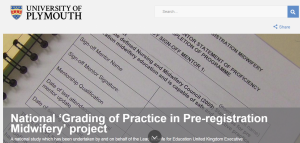


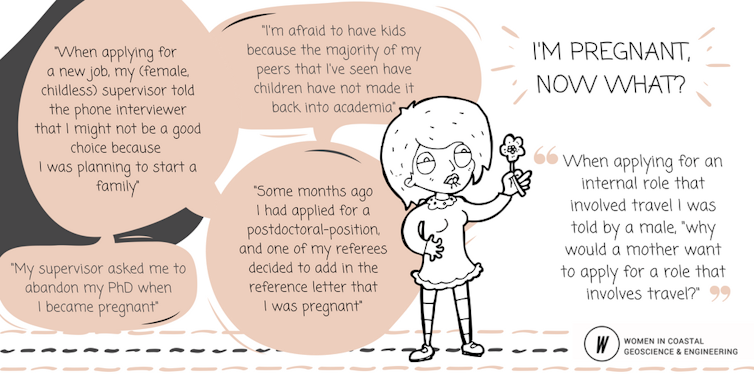
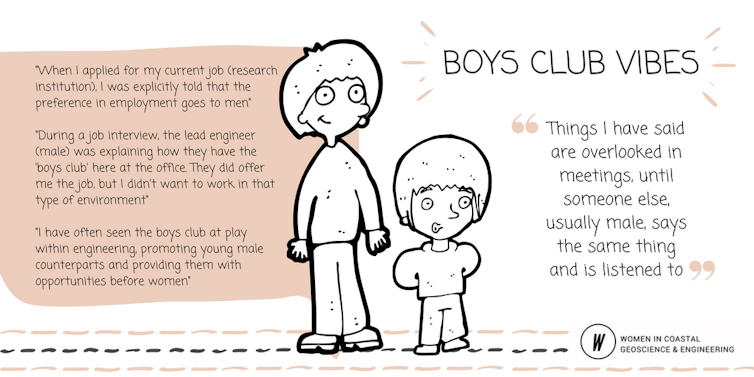
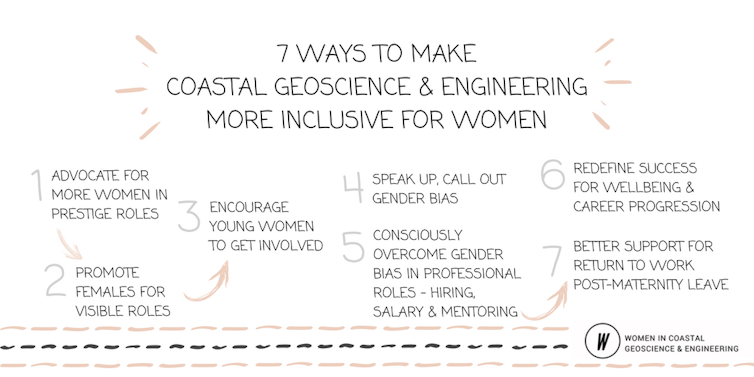
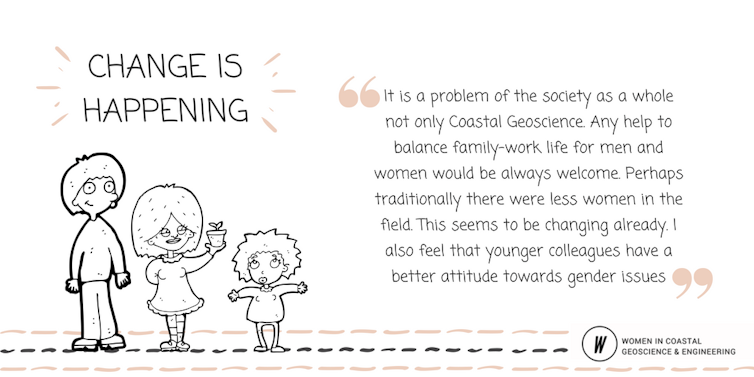
 Funder call information sessions and networking workshops are growing in popularity with research funders. Adam Golberg, University of Nottingham, has written a helpful guide on Research Professional, where he explains how to make these meetings a success.
Funder call information sessions and networking workshops are growing in popularity with research funders. Adam Golberg, University of Nottingham, has written a helpful guide on Research Professional, where he explains how to make these meetings a success.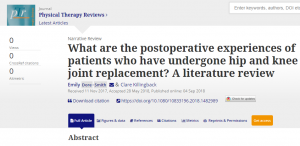

 On 4 September 2018, 11 national research funding organisations, with the support of the European Commission including the European Research Council (ERC), announced the launch of cOAlition S, an initiative to make full and immediate Open Access to research publications a reality. It is built around Plan S, which consists of one target and 10 principles.
On 4 September 2018, 11 national research funding organisations, with the support of the European Commission including the European Research Council (ERC), announced the launch of cOAlition S, an initiative to make full and immediate Open Access to research publications a reality. It is built around Plan S, which consists of one target and 10 principles.

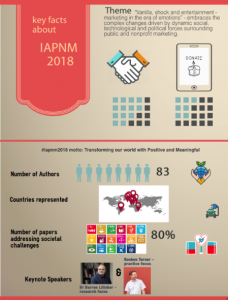
 Every BU academic has a
Every BU academic has a  By clicking on this box, on the left of the Research Blog home page just under the text ‘Funding Opportunities‘, you access a
By clicking on this box, on the left of the Research Blog home page just under the text ‘Funding Opportunities‘, you access a 










 New Nepal scoping review on maternal & neonatal health
New Nepal scoping review on maternal & neonatal health Fourth INRC Symposium: From Clinical Applications to Neuro-Inspired Computation
Fourth INRC Symposium: From Clinical Applications to Neuro-Inspired Computation Writing policy briefs
Writing policy briefs Upholding Excellence: The Concordat to Support Research Integrity
Upholding Excellence: The Concordat to Support Research Integrity ECR Funding Open Call: Research Culture & Community Grant – Application Deadline Friday 12 December
ECR Funding Open Call: Research Culture & Community Grant – Application Deadline Friday 12 December MSCA Postdoctoral Fellowships 2025 Call
MSCA Postdoctoral Fellowships 2025 Call ERC Advanced Grant 2025 Webinar
ERC Advanced Grant 2025 Webinar Horizon Europe Work Programme 2025 Published
Horizon Europe Work Programme 2025 Published Horizon Europe 2025 Work Programme pre-Published
Horizon Europe 2025 Work Programme pre-Published Update on UKRO services
Update on UKRO services European research project exploring use of ‘virtual twins’ to better manage metabolic associated fatty liver disease
European research project exploring use of ‘virtual twins’ to better manage metabolic associated fatty liver disease